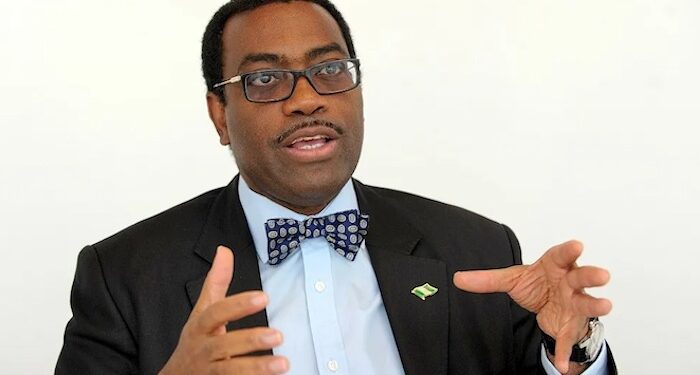President of the African Development Bank (AfDB), Dr. Akinwumi Adesina, has issued a critical warning on Nigeria’s economic future, stressing that without urgent reforms in power and infrastructure, the country risks a prolonged period of stagnation.
Speaking at the 20th Anniversary Dinner of Chapel Hill Denham in Lagos, Adesina called for decisive policy shifts to unlock Nigeria’s economic potential and reclaim its status as an industrial powerhouse.
“Without stable electricity, Nigeria’s economy is stuck in slow motion,” he warned. “You can’t industrialise, compete globally, or generate jobs without reliable power.”
He emphasised that energy access is more than just lighting homes—it’s essential for productivity, economic inclusion, and technological advancement. Adesina stated that Nigeria must abandon diesel-powered systems and transition to a 21st-century energy grid, backed by clean and scalable solutions, with the private sector playing a leading role.
He urged reforms such as cost-reflective tariffs, enforceable power purchase agreements, and access to blended finance to attract investment. “The market must work. Investors need clarity, certainty, and contracts that are bankable,” Adesina said.
The AfDB president announced a joint initiative with the World Bank—“Mission 300”—to connect 300 million Africans to electricity by 2030, adding that Nigeria must position itself as a major beneficiary.
Beyond energy, Adesina pointed to Nigeria’s vast infrastructure deficit as a major growth inhibitor. He advocated for long-term investment in roads, rail, seaports, telecoms, and broadband to boost productivity and competitiveness, especially under the African Continental Free Trade Area (AfCFTA).
“No investor will remain in a market where goods can’t move or data can’t flow,” he said. “Infrastructure is not optional—it is foundational.”
Adesina also called for the mobilisation of local pension and sovereign wealth funds, development of local capital markets, and modern financing frameworks like originate-to-distribute to de-risk projects and make them bankable.
Turning to industrialisation, he lamented Nigeria’s declining manufacturing strength. “In the 1980s, Nigeria was assembling cars and producing textiles. Today, that industrial base is eroded,” he said, citing Nigeria’s manufacturing export value per capita at just $160 compared to Vietnam’s $3,600 and Malaysia’s $7,100.
Adesina stressed that Nigeria must transition from raw material exports to value-added production by building industrial zones and easing regulatory barriers. “Every barrel of oil and ton of cocoa must create jobs at home—not abroad,” he stated.
He also highlighted the importance of a knowledge economy, urging deeper investments in universities, research, and innovation to curb brain drain and attract global talent back to Nigeria.
In agriculture, Adesina touted the $1.3 billion Special Agro-Industrial Processing Zones (SAPZ) program, co-financed by AfDB, Islamic Development Bank, and IFAD, as a game-changer that can create jobs and transform rural economies.
“These agro-industrial zones will turn rural areas into engines of growth and reduce migration by generating income and opportunity,” he said.


